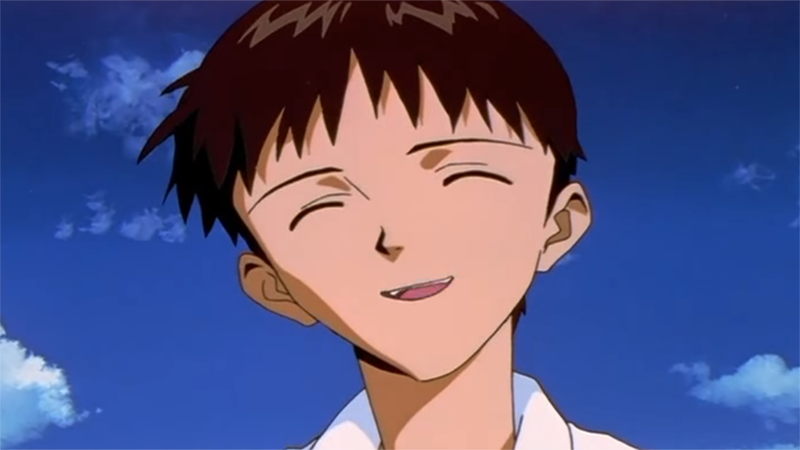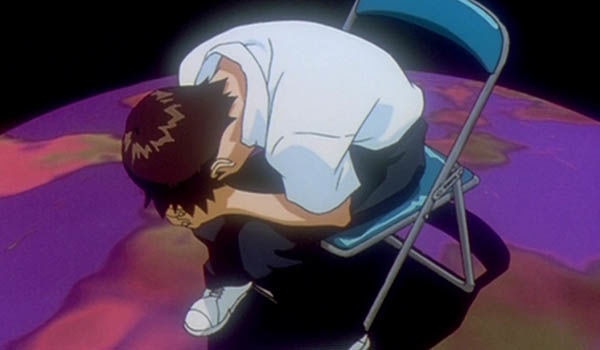Create a free profile to get unlimited access to exclusive videos, sweepstakes, and more!
People really hated the ending of Neon Genesis Evangelion. Here's why they were wrong

The final two episodes of Neon Genesis Evangelion are pretty infamous; those two episodes may be the most notable examples of "Man, that was going great but they really whiffed the ending" in anime history. In fact, they were so controversial that the show's creator, Hideaki Anno, and the studio, Gainax, actually released two films, Death & Rebirth and End of Evangelion, to kind of "replace" the ending. And while I am a fan of End of Evangelion, I don't think the last two episodes of NGE are that big of a disaster. Actually, I'm quite fond of the story that they try to tell, no matter how brutally, soul-crushingly sad it is.
First of all, though, let me address the fact that Anno actually received death threats after NGE concluded. I won't try to joke that off with a "Wow, people got THAT mad?", because there's no joking about this. That's just about the worst thing you can do when your anime series doesn't end how you want it to. Threatening someone with harm because their idea of what their fictional creation should be doesn't line up with yours is sub-human. We're better than that, like, as a species.
But back to NGE.
In Episode 25, the Human Instrumentality Project begins and we see a Shinji who is wracked with grief and self-loathing, even more so than usual. Then he and the other main characters are faced with their reasons for being.
Now, this question has plagued them for the entirety of Evangelion, where the characters don't just grasp blindly for answers, but flail for anything to hang onto. Existence is a mystery to them, and their constant state of "Why am I here or doing any of this?" has led to them being unable to make connections with others or emotionally progress in any healthy manner.
The Human Instrumentality Project, of course, includes all of the souls of every person merging into one collective consciousness. To Shinji, this actually sounds kind of great, as his entire reality is one of depression, loneliness, and pain. But even still, he deals with questions about his worth. Even when his "world" turns into a void of nothingness, he still deals with attempting to find out the truth about himself. Then we find his alternate reality, where everything has become a part of a goofy, school-age comedy and Shinji is no longer an EVA pilot but instead inhabits a much more "normal" role.
Then, finally, we get Shinji deciding to love himself while the cast stands around and tells him "Congratulations." Shinji thanks everyone and Evangelion ends. If you haven't watched Evangelion: Yes, that is how it actually ends.
Now, I think people are mainly disappointed with this for two reasons: 1) It kind of eschews what seems to be the main plot for a journey through Shinji's mental state, and 2) it is not the dramatic "Third Impact" that seems to have been foreshadowed. It is not an explosive finale full of EVA battles and the world being thrown into an apocalypse. Instead, it is the themes of the show filtered through Shinji. And since Shinji spends a ton of NGE not being an enthusiastic participant in his own storyline, this seems like a bummer.
However, it's actually quite fitting. Shinji's character arc was never meant to conclude with him rising above his flaws or his weaknesses in some dramatic way. It's not typical in that regard. Instead, Shinji finding "peace" in an alternate reality with everyone congratulating him is a haunting kind of optimistic; it is the exact opposite of what he has imagined his life being the whole time — an existence in which everyone is let down by him all the time, an existence in which he is constantly being shoved into the claustrophobic pit of giant robot for reasons he'll never quite grasp.
NGE has never been about finding happiness. Instead, it's about finding purpose. Happiness and love are wavering constructs that no one quite understands. This means that Shinji beginning to "love himself" and then suddenly being on a peaceful reef, under bright skies, being applauded by everyone, is an angrily sad and twisted ending. It's purposeless happiness. It's the opposite of what Shinji's always wanted.
But Shinji doesn't know that. He's a character who doesn't really know how to express love or be loved, so for him to imagine that a shallow "You did it, Shinji!" reaction is "loving himself" makes everything even sadder. And what better way to end NGE than with the most existentially depressing thing ever?
But that's just my take.
The views and opinions expressed in this article are the authors', and do not necessarily reflect those of SYFY WIRE, SYFY, or NBC Universal.





























